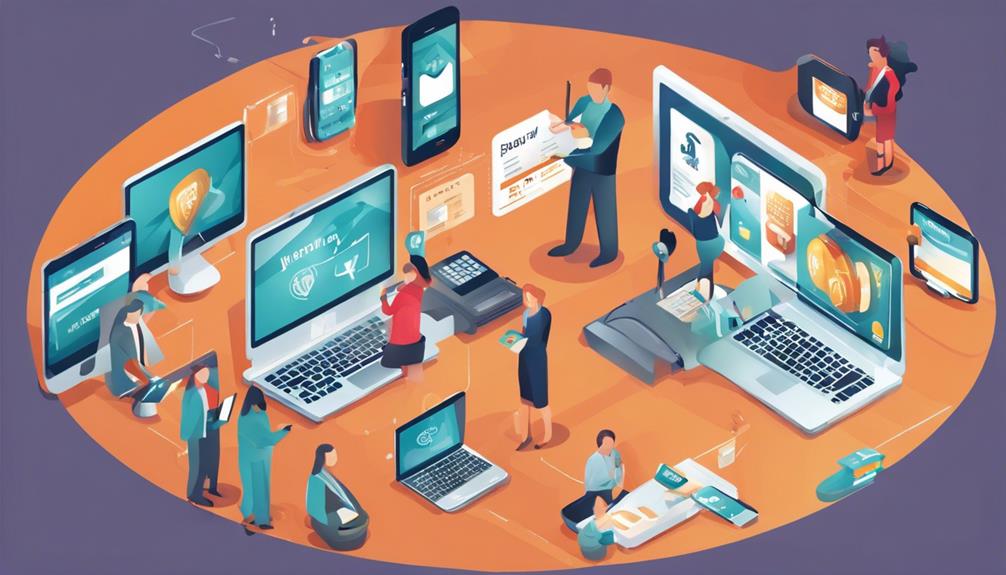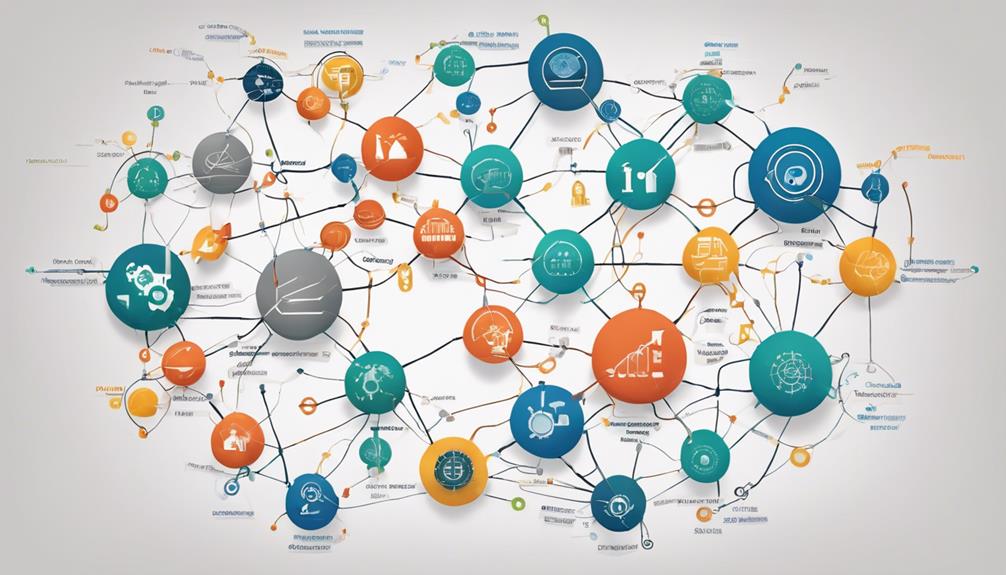Understanding IVR Payment Processing Solutions makes secure phone transactions easier, ensures PCI compliance, and boosts customer confidence with self-service and agent-assisted options. IVR solutions not only ensure PCI compliance and secure customer data, but they also provide user-friendly interfaces for secure transactions. Improving data security with IVR means using advanced encryption techniques and fraud prevention strategies such as tokenization.
Implementing IVR in industries streamlines payment processes, enhances efficiency, and ensures a scalable and secure payment approach. IVR technology not only improves customer experience but also enhances data security and cash flow management. Unveiling the depths of IVR payment processing solutions reveals a robust system that revolutionizes payment processes seamlessly.
Key Takeaways
- IVR simplifies phone payments securely.
- Ensures PCI compliance standards.
- Does not store sensitive payment information.
- Provides peace of mind to customers.
- Offers self-service and agent-assisted options.
IVR Payment Processing Explained
IVR payment processing simplifies payment transactions by allowing customers to enter payment details over the phone securely. IVR systems play a crucial role in ensuring secure transactions by adhering to PCI compliance standards and not storing sensitive payment information.
This compliance with industry regulations like PCI and HIPAA provides customers with peace of mind regarding the safety of their data. Additionally, IVR systems offer both self-service and agent-assisted options, giving customers the flexibility to choose the payment method that suits them best while maintaining a high level of security.
Key Features of IVR Payments
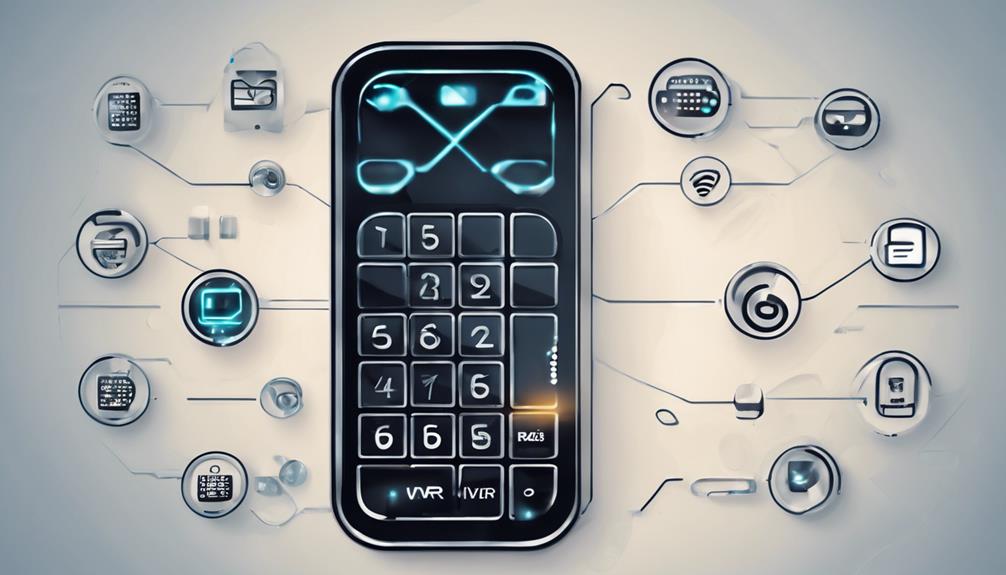
Exploring the functionality of IVR payment systems reveals the key features that enhance customer payment experiences and ensure secure transactions. IVR payments guarantee PCI compliance by handling customer data securely through integration with third-party systems, streamlining payment processing.
The utilization of secure connections within IVR systems safeguards sensitive transaction information, instilling trust in customers. User-friendly interfaces make IVR payments straightforward and convenient, empowering users to navigate transactions with ease. Particularly beneficial in industries like insurance and utilities, IVR systems facilitate bill payments over the phone, providing a seamless and efficient payment solution.
Enhancing Data Security With IVR
When it comes to enhancing data security with IVR, we focus on three key points:
- The importance of data encryption
- Measures for preventing fraud
- Strict adherence to compliance regulations
These aspects play a crucial role in safeguarding sensitive information during IVR transactions, ensuring both company and customer data are protected.
Data Encryption Importance
Enhancing data security with IVR involves implementing robust data encryption methods to safeguard sensitive information during payment processing. Encryption plays a vital role in protecting customer data, such as credit card details, from unauthorized access. Commonly used algorithms like AES encode data during IVR transactions, making the encrypted information unreadable without the decryption key, thereby adding a crucial layer of security.
Compliance with PCI-DSS standards mandates encryption to safeguard payment information and ensure regulatory adherence. By utilizing advanced encryption techniques, IVR payment processing solutions can provide a secure environment for transmitting and handling confidential data, instilling confidence in customers regarding the protection of their sensitive information.
Fraud Prevention Measures
To strengthen data security and combat fraud, IVR payment processing solutions implement robust measures such as PCI compliance and encryption protocols.
When it comes to fraud prevention in IVR payments, several key strategies are employed:
- Tokenization: Secure IVR systems utilize tokenization to replace sensitive card details with tokens, adding an extra layer of security.
- Real-time Monitoring: Fraud prevention includes continuously monitoring transactions for any suspicious activities, ensuring customer transactions are safeguarded.
- No Data Storage: IVR systems don't store payment details, significantly reducing the risk of data breaches and fraudulent attempts.
- PCI Compliance: Adhering to PCI compliance standards is crucial for maintaining a secure environment and protecting customer information during IVR transactions.
Compliance Regulations Adherence
Adhering to strict compliance regulations ensures data security is a top priority for IVR payment processing solutions. PCI compliance plays a crucial role in safeguarding sensitive information during IVR transactions.
By following encryption protocols and adhering to compliance regulations like HIPAA standards, IVR systems ensure that personal data remains protected. These measures not only prevent fraud but also build trust with customers regarding data security.
IVR solutions don't store payment details, enhancing data security by minimizing the risk of breaches. Prioritizing compliance regulations in IVR processing demonstrates a commitment to maintaining the integrity of payment information.
Encryption protocols further reinforce the secure handling of sensitive data, making data security a paramount concern in IVR payment processing.
Benefits of IVR for Businesses
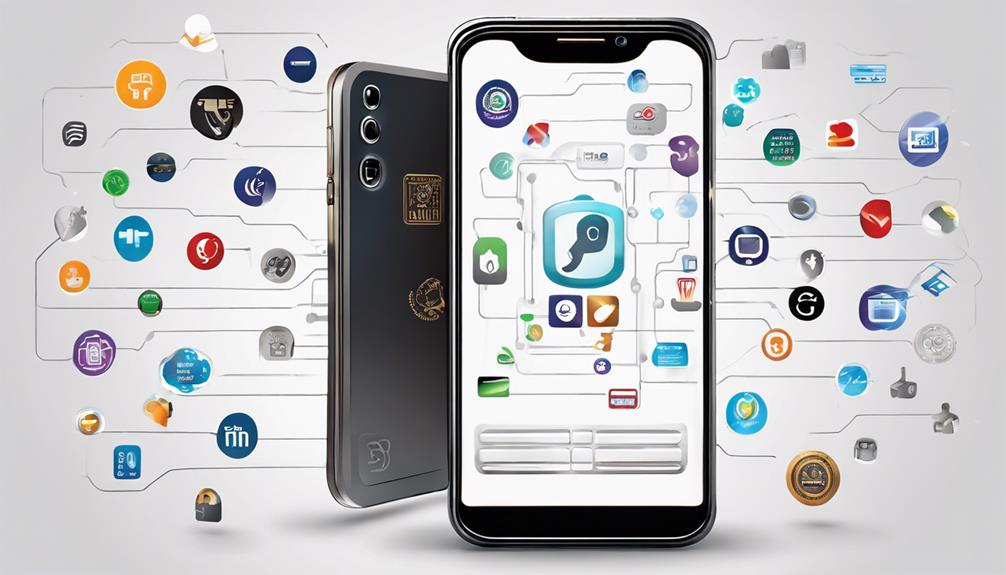
Utilizing IVR for payment processing offers businesses significant advantages in automating payment tasks and enhancing customer service. Here are four key benefits of IVR for businesses:
- Increased Operational Efficiency: IVR payments reduce the workload for staff members by automating payment processes, allowing them to focus on other essential tasks, thus increasing operational efficiency.
- Improved Customer Experience: Businesses can offer 24/7 payment availability with IVR, providing convenience to customers and enhancing their experience and satisfaction.
- Enhanced Data Security: IVR payments comply with major industry standards like PCI and HIPAA, ensuring data security and confidentiality, giving customers peace of mind when making payments.
- Better Cash Flow Management: IVR payments help businesses reduce the risk of late or missed payments, improving cash flow and overall financial stability.
Incorporating IVR into payment processes not only streamlines operations but also boosts customer satisfaction and data security, making it a valuable asset for businesses seeking to optimize their payment systems.
Implementing IVR in Industries

Implementing IVR systems in industries like healthcare and retail offers streamlined payment processing, enhancing efficiency and customer satisfaction. These sectors benefit from the secure and customizable nature of IVR solutions, reducing manual workload and ensuring compliance with financial regulations.
IVR technology in these industries provides a scalable approach to meet diverse business needs, optimizing payment processes for seamless transactions.
IVR in Healthcare
In healthcare, the integration of IVR systems revolutionizes patient interactions and enhances operational efficiency.
- IVR in healthcare streamlines appointment scheduling, prescription refills, and bill payments, providing patients with convenient access to essential services.
- Healthcare providers utilize IVR systems to send automated reminders for upcoming appointments and follow-up care, improving patient adherence to treatment plans.
- IVR solutions in healthcare play a crucial role in enhancing patient satisfaction by offering easy access to information and services, fostering a positive healthcare experience.
- IVR technology in healthcare not only reduces administrative burden but also ensures HIPAA compliance by securely handling patient information and payments, prioritizing data security and confidentiality.
IVR in Retail
In retail, IVR payment processing solutions streamline transactions and enhance customer convenience, significantly improving payment efficiency and security. Retail businesses can automate payment processes using IVR technology, adhering to PCI standards for secure payments. By implementing IVR systems in retail, companies reduce the risk of manual errors in payment processing while ensuring data protection. Customers benefit from a seamless payment experience over the phone, increasing overall satisfaction. Below is a table illustrating the advantages of IVR technology in retail:
| Advantages of IVR Technology in Retail |
|---|
| Enhances payment efficiency |
| Ensures secure payments |
| Automates payment processes |
Improving Customer Experience With IVR

To enhance customer satisfaction, IVR systems offer a range of features that streamline the payment process and elevate user engagement. Here are four ways IVR systems improve the customer experience:
- Customizable IVR Prompts: Tailored prompts guide customers through the payment process, making it more intuitive and engaging.
- Quick Access to Agent Assistance: Immediate access to live agents for assistance enhances user experience by addressing queries promptly and reducing wait times.
- Data Security Measures: IVR systems prioritize data security and comply with PCI standards to ensure customer information is safeguarded during transactions.
- Real-Time Payment Processing: IVR payments enable real-time processing, enhancing cash flow and providing customers with instant payment confirmation, improving overall satisfaction.
IVR Integration With Third-Party Systems

Transitioning from enhancing customer experience with IVR, we now explore the seamless communication achieved through IVR integration with third-party systems. IVR integration with third-party systems allows for enhanced functionality and data sharing, enabling real-time updates and a more streamlined payment processing system. By integrating with external software such as CRM systems, payment gateways, and reporting tools, businesses can improve efficiency and provide customers with a robust payment experience. This seamless communication between the IVR platform and third-party systems is crucial for maximizing the benefits of IVR payment processing solutions and staying competitive in the market.
| Benefits of IVR Integration | |
|---|---|
| Enhanced Functionality | Streamlined Operations |
| Real-time Updates | Improved Efficiency |
| Data Sharing | Robust Payment Experience |
Ensuring PCI Compliance With IVR
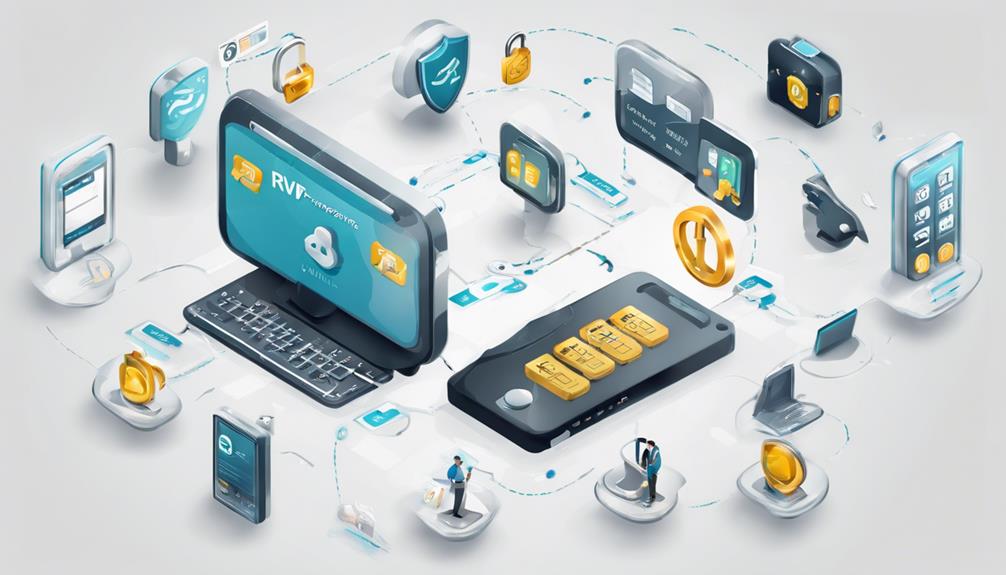
When ensuring PCI compliance with IVR systems, it's essential to adhere to PCI DSS requirements.
Secure payment processing is a top priority to protect sensitive customer data during transactions.
Implementing encryption and secure protocols helps maintain PCI compliance standards and build trust with customers.
PCI DSS Requirements
Implementing PCI DSS requirements is crucial for businesses handling IVR payments to ensure data security and compliance with industry standards. When it comes to PCI DSS requirements for IVR payments, here are some key points to consider:
- Protection of Sensitive Cardholder Data: Adhering to PCI DSS helps in safeguarding sensitive card information during IVR transactions.
- Prevention of Data Breaches: Compliance with PCI DSS standards is essential for preventing data breaches in IVR payment systems.
- Securing IVR Payment Processing Systems: Implementing PCI DSS requirements enhances the security of IVR payment processing systems.
- Building Customer Trust: Meeting PCI DSS requirements in IVR systems aids in building trust with customers by ensuring the security of their payment data.
Secure Payment Processing
With a focus on maintaining PCI compliance, secure payment processing in IVR systems prioritizes data security to protect sensitive information during transactions. IVR payment solutions offer secure connections, ensuring that customer data is safeguarded against unauthorized access. By not storing sensitive payment details, IVR systems adhere to strict security standards, such as the SecureAssistant feature, to maintain full PCI compliance. This approach enhances overall data protection for businesses, safeguarding company, staff, and customer information. By prioritizing data security in IVR payment solutions, organizations can conduct transactions with peace of mind, knowing that sensitive information is handled securely.
| Secure Payment Processing | ||
|---|---|---|
| PCI compliance | Secure connections | Data security |
| Sensitive information | IVR payment solutions |
IVR Solutions for Secure Transactions
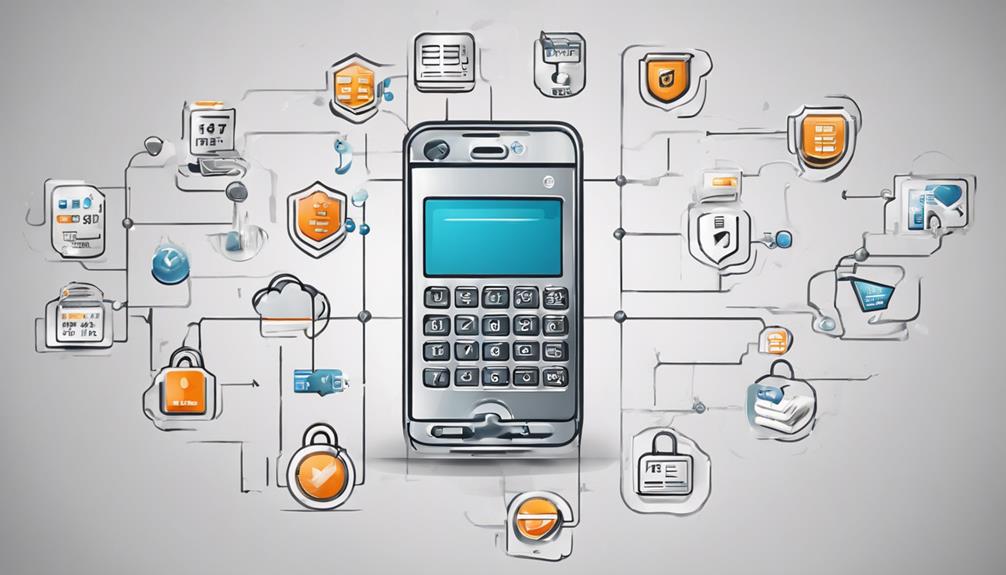
Utilizing IVR solutions ensures secure transactions by safeguarding payment details and adhering to global data protection standards. When considering IVR solutions for secure transactions, it's crucial to understand the key elements that contribute to their reliability:
- Non-Storage of Payment Details: IVR solutions don't retain payment information after transactions, reducing the risk of data breaches associated with traditional payment methods.
- Compliance with PCI Standards: IVR payments adhere to global PCI standards for data protection, ensuring that customer information remains secure and confidential.
- HIPAA Legislation Compliance: IVR payment solutions also align with HIPAA legislation, emphasizing the protection of personal data and maintaining confidentiality during transactions.
- Agent-Free Secure Transactions: IVR payments provide a secure method for customers to make transactions without the need for live agents to handle sensitive payment information, enhancing overall security.
Cost Efficiency of IVR Payments
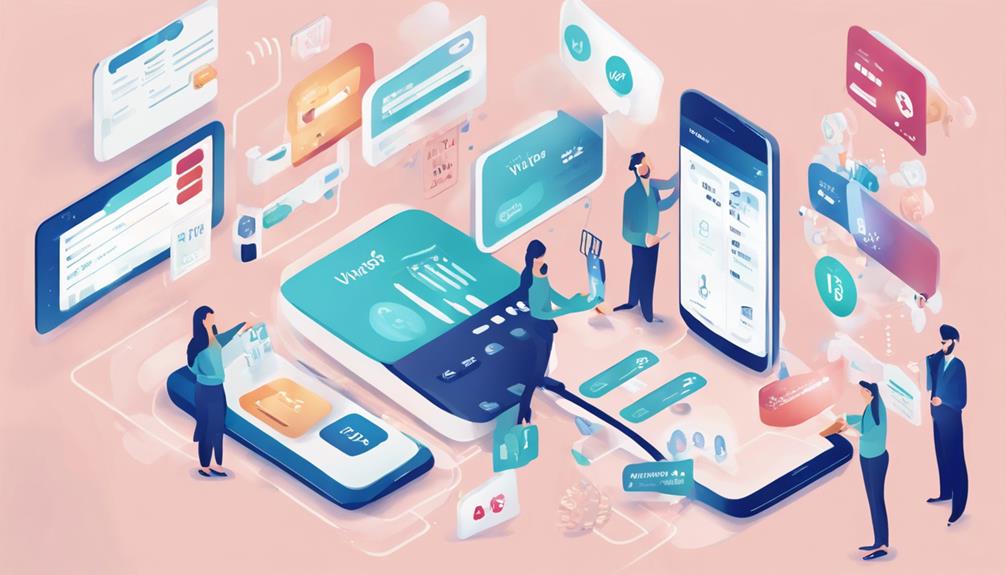
Embracing IVR payments enhances our company's operational efficiency by automating processes and minimizing manual interventions, resulting in significant cost savings. By leveraging IVR solutions, businesses can reduce operational costs associated with payment processing. Automating payment collection through IVR systems eliminates the need for additional staffing, leading to substantial cost reduction. Furthermore, IVR payments streamline operations, improving overall efficiency and driving down expenses for companies. These automated systems can handle multiple payment transactions simultaneously, increasing cost efficiency through swift and accurate processing. With IVR payments, businesses can scale their customer support operations without incurring extra labor costs, enhancing overall cost efficiency.
| Benefits of IVR Payments | ||
|---|---|---|
| Cost Reduction | Automate Payment Collection | Operational Costs |
| Streamlined Operations | Improved Efficiency | Scalable Customer Support |
Increasing Productivity With IVR

Pivoting from our discussion on the cost efficiency of IVR payments, let's explore how IVR systems contribute to increased productivity within businesses.
- Efficient Handling of Concurrent Calls: IVR systems excel at managing multiple calls simultaneously, ensuring that businesses can handle customer inquiries promptly and efficiently.
- Automation for Enhanced Efficiency: By automating repetitive tasks and processes, IVR systems reduce the need for manual intervention, allowing employees to focus on more complex and strategic activities.
- Cost-Effective Operations: IVR payment solutions help in cutting down operational costs by streamlining payment processes and minimizing the resources required for manual payment handling.
- Secure Environment for Productivity: Providing a secure and compliant environment for payment processing, IVR systems ensure that transactions are conducted in a safe and protected manner, fostering trust and productivity.
Future Trends in IVR Technology
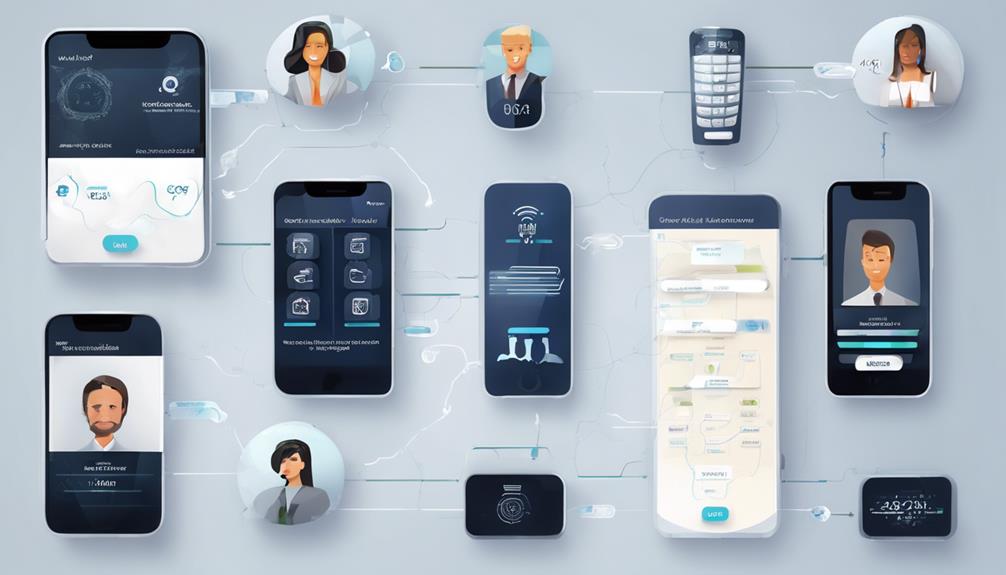
Looking ahead, we anticipate exciting advancements in IVR technology that will revolutionize customer interactions and payment processing solutions. The integration of artificial intelligence into IVR systems will make interactions more intuitive and efficient, enhancing the overall customer experience. This advancement will allow for tailored prompts and responses, providing personalized customer experiences like never before. Moreover, IVR systems are evolving to seamlessly support multiple languages, catering to diverse customer bases and ensuring a broader reach.
In addition, the integration of voice biometrics and advanced security protocols will bolster the security of IVR payment processing solutions, offering customers peace of mind when making transactions. Furthermore, enhanced data analytics capabilities within IVR systems will provide businesses with valuable insights to optimize their payment processes and improve overall efficiency. These future trends in IVR technology showcase a promising direction towards more secure, efficient, and personalized customer interactions in the realm of payment processing solutions.
Frequently Asked Questions
What Is the IVR Payment Line?
We use the IVR payment line to securely process phone payments. Customers input unique reference numbers and card details. It doesn't store payment info. IVR payment lines help automate transactions, reduce workload, and offer convenient payment options.
What Are IVR Transactions?
IVR transactions involve customers inputting payment details over the phone to complete transactions securely. Telecom companies don't store data, ensuring protection. Setting up dedicated phone lines streamlines processing. Real-time authorization enhances efficiency.
What Does IVR Mean in Banking?
In banking, IVR means Interactive Voice Response. It lets us manage accounts, process transactions, and access self-service options through automated voice prompts. IVR systems are crucial for enhancing customer experience, improving efficiency, and reducing costs.
What Is an IVR Card Payment?
An IVR card payment is a secure method for making phone payments. Customers input their card details and reference numbers for quick transactions. It's available 24/7, PCI compliant, and convenient for utility, credit card, and recurring payments.
Can Payment Processing Terminals Be Integrated with IVR Payment Solutions?
To optimize efficiency and security, integrating payment processing terminals understanding with IVR payment solutions is essential. This integration ensures seamless transaction processing and enhanced customer experience, streamlining the payment process for businesses and their clients.
Conclusion
In conclusion, IVR payment processing solutions offer businesses a secure, efficient, and cost-effective way to handle transactions. By implementing IVR technology, organizations can streamline operations, enhance data security, and increase productivity.
As the future trends in IVR technology continue to evolve, businesses can expect even more advancements in this field. Embracing IVR solutions is the key to staying ahead in an ever-changing digital landscape.
